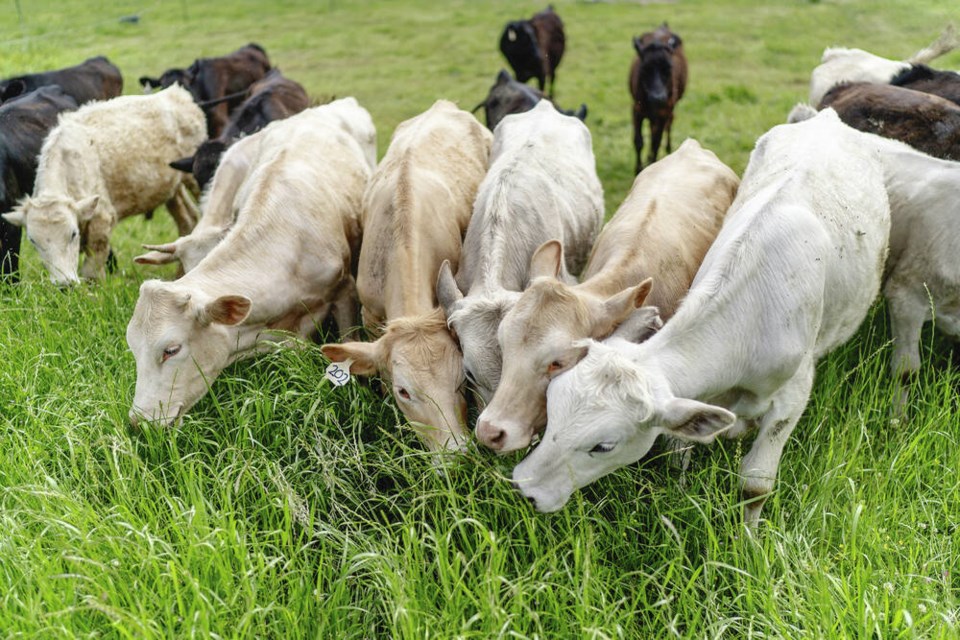What some call the agri-food sector — primary agriculture, food and beverage processors, food retailers and wholesalers, and food-service providers — has a problem.
We need to feed eight billion people. But if the whole world ate the way we do, not only would their health be harmed and the toll of 11 million premature deaths would grow enormously, but the damage to the Earth’s natural systems would also grow enormously.
A 2022 UN report on global land use noted: “Modern agriculture has altered the face of the planet more than any other human activity.”
The report found that “agriculture now occupies approximately 40 per cent of the global land area,” and that 52 per cent of that land is degraded.
Moreover, agriculture is responsible for 80 per cent of global deforestation and 70 per cent of freshwater use, while drivers linked to food production cause 70 per cent of land-based biodiversity loss and 50 per cent of freshwater biodiversity loss.
Food production also accounts for about one-quarter of global greenhouse-gas emissions, much of it methane from cows and other ruminant livestock and nitrous oxides from fertilizer use, the report notes.
In addition, “deforestation and the draining and burning of peatlands for food and commodity production generate the bulk of carbon emissions,” while centuries of ploughing and soil erosion have added large quantities of CO2 to the atmosphere.
On top of that should be added the impact of food fisheries on the oceans and marine biodiversity.
The World Wildlife Fund, citing the UN’s Food and Agriculture Organization, notes “the number of overfished stocks globally has tripled in half a century and today fully one-third of the world’s assessed fisheries are currently pushed beyond their biological limits.”
In addition, there is substantial harm done to unwanted species — known as bycatch — as well as turtles, dolphins and whales.
And added to all that is the pollution arising from the use of pesticides and fertilizers, animal manure and other causes, which result both in toxic impacts on humans and wildlife (pesticides cause harm to the nervous system and reproduction in many species), while runoff “degrades water and soil quality, and causes eutrophication” — “dead zones” in the oceans and algal blooms in lakes.
Clearly this state of affairs is unsustainable, especially when we consider that “nearly 80% of total agricultural land is dedicated to feed and livestock production while providing less than 20% of the world’s food calories,” according to the 2022 UN report.
But meat consumption has been trending upwards, globally, for decades, suggesting that even more land will be needed, and it will need to be farmed more intensively.
The good news is that, as is usually the case, what is good for the planet is also good for us.
It turns out that a more healthy diet is a more sustainable diet, as was described in a 2019 report from a commission established by The Lancet — one of the world’s leading medical journals — and EAT, a global, non-profit foundation established to catalyze a food system transformation.
The report — “Our Food in the Anthropocene” — explored how we would get healthy diets from sustainable food systems, noting that “without action … today’s children will inherit a planet that has been severely degraded and where much of the population will increasingly suffer from malnutrition and preventable disease.”
They called for “a radical transformation of the global food system,” proposing “a more than doubling in the consumption of healthy foods such as fruits, vegetables, legumes and nuts, and a greater than 50% reduction in global consumption of less healthy foods such as added sugars and red meat,” much like the new Canada Food Guide.
The report’s authors lay out a plan for such a transformation, adding: “Food is the single strongest lever to optimize human health and environmental sustainability on Earth.”
So a healthy diet can massively reduce our environmental impact. We urgently need the agri-food industry to be 100 per cent behind this shift, for the sake of people and the planet.
But their track record is not good and clearly the industry cannot be trusted to change quickly enough on its own, so this will require government action, as I discuss next week.
Dr. Trevor Hancock is a retired professor and senior scholar at the University of Victoria’s School of Public Health and Social Policy




